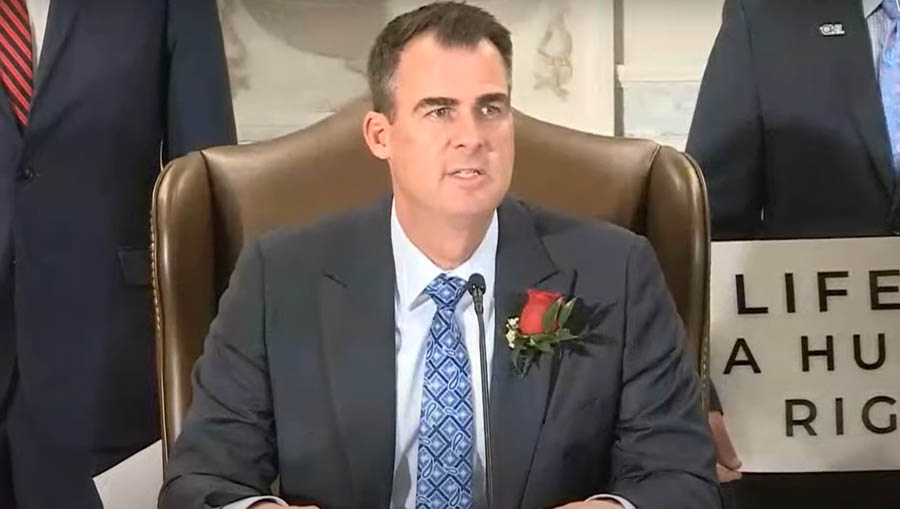(Live Action) Oklahoma Governor Kevin Stitt signed into law on Tuesday a bill that will ban the majority of abortions and make committing them a felony. The bill received more than 80% support in both legislative chambers.
Senate Bill 612 only allows abortions if the mother’s life is at risk. In reality, abortion is never medically necessary. There are some instances in which the mother’s health will require the preterm delivery of her baby, but preterm delivery or emergency C-section is not considered an abortion. Babies born as young as 21 weeks have survived with medical assistance, and it is not necessary to actively kill an undelivered baby in order to end a pregnancy.
[Click here to subscribe to Pregnancy Help News!]
The law does not allow exceptions for fetal diagnosis, rape, or incest. Anyone who carries out an abortion could be charged with a felony punishable by up to 10 years in prison and a $100,000 fine. The bill’s sponsor, Senator Jim Olsen, stated that only the person committing the abortion — the abortionist — would face penalties under the law, not the mother.
“I promised Oklahomans that I would sign every pro-life bill that hits my desk and that’s what we’re doing today,” Stitt said at the signing ceremony, according to People. “As governor, I represent all 4 million Oklahomans, and they overwhelmingly support protecting life in the state of Oklahoma. We want Oklahoma to be the most pro-life state in the country. We want to outlaw abortion in the state of Oklahoma.”
The new law is scheduled to go into effect this summer, according to The Washington Post. However, it is expected to be blocked quickly by abortion advocates.
Tweet This: Oklahoma Senate Bill 612 allows abortions if the mother’s life is at risk but does not allow exceptions for fetal diagnosis, rape, or incest
This summer, the Supreme Court is scheduled to release its ruling in Dobbs v. Jackson Women’s Health Organization, which could ultimately change when and how states can restrict abortion. Stitt said he is “so excited about the Supreme Court addressing this issue and giving it back to the states where it belongs.”
Editor's note: This article was published by Live Action News and is reprinted with permission.






